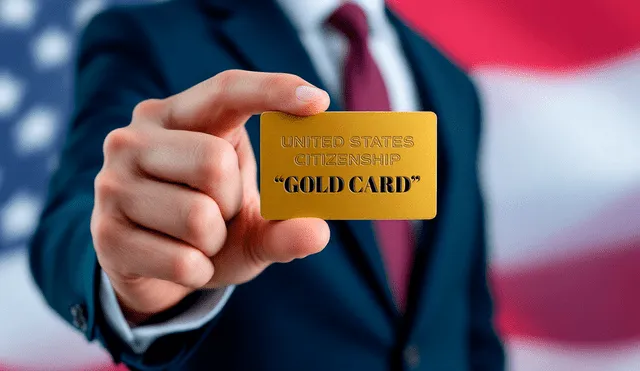Trump pushes $5 million gold visa scheme for foreigners investing in US jobs
U.S. President Donald Trump has proposed replacing the EB-5 immigrant investor visa program with a $5 million “gold card” that would offer green card privileges and a pathway to citizenship.

President Donald Trump announced plans on Tuesday to introduce a new immigration initiative, replacing the long-standing EB-5 plan with what he calls a “gold card.” The proposed program would allow foreign investors to purchase a U.S. residency card for $5 million, granting them green card privileges and a direct path to United States nationality.
The announcement immediately raised questions about who would qualify for the program, with Trump himself acknowledging that Russian oligarchs could potentially be eligible. “Yeah, possibly. Hey. I know some Russian oligarchs that are very nice people,” he remarked. Commerce Secretary Howard Lutnick defended the decision, calling the EB-5 program “full of nonsense, make-believe, and fraud,” and stating that the administration's priority is to replace it with a more straightforward, high-value alternative. Further details on the “gold card” program are expected to be released in the coming weeks.
What are the potential implications of Trump's proposed $5 million 'gold card' immigration program?
Donald Trump's proposal to replace the employment-based, 5th preference (EB-5) immigrant investor visa program with a $5 million "gold card" has sparked mixed reactions. Supporters argue it could attract wealthy individuals who would boost the American economy. Commerce Secretary Howard Lutnick stated the initiative aims to draw "exceptional global citizens" to create jobs and stimulate growth. The regime projects that selling up to one million gold cards could generate significant revenue, potentially reducing the national debt.
Critics, however, warn that monetizing citizenship could prioritize wealth over merit and fairness. Migration advocates argue it undermines equal opportunity, while security experts worry about inadequate vetting. Concerns have also been raised about potential buyers, including Russian magnats, after Trump acknowledged they might qualify. As the leadership prepares to release details, debates continue over balancing economic incentives with the integrity of the U.S. foreign residency system.
How could Trump's elite visa reshape U.S. residency policies?
If implemented, the $5 million "gold card" could mark a major transition in United States legal stay rules by prioritizing financial investment over traditional pathways like employment or family sponsorship. This approach aligns with similar initiatives in countries such as Canada and Portugal, which offer citizenship to high-net-worth individuals. Supporters believe it could simplify entry for investors while strengthening the economy, but it also raises questions about fairness and accessibility for middle-class applicants.
Apart from monetary impact, the campaign could influence diplomatic relations, particularly if certain foreign nationals are favored over others. Opponents argue it risks creating a structure where naturalization is effectively for sale, benefiting the ultra-wealthy while sidelining those seeking entry through existing merit-based processes. With details still forthcoming, the debate continues over whether this plan will expand opportunities or fundamentally alter the values of the U.S. immigration framework.












